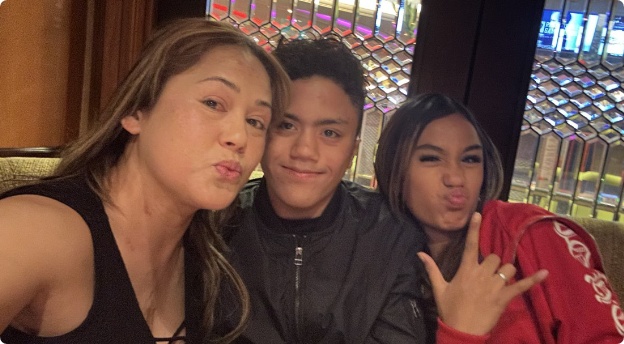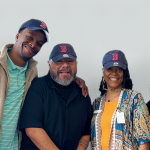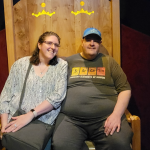Thriving, Thoughtful, and Thankful: Reconnecting with Transplant Patient Roxy
National Donate Life Month is a time to raise extra awareness about organ donation and celebrate the generosity of those who sacrifice to help others live longer, healthier lives. It’s also a perfect time to share some joy with those who’ve had their lives changed by these amazing gifts.
“If I could have known my kidney donor, I would express how grateful I am for a second chance,” says Roxy*, a kidney recipient and former NxStage user. “I have such respect for people who want to donate because they see others in need”. One in seven adults in the U.S. have chronic kidney disease.1 “It’s not just one nationality or race or gender. It can affect anybody.”
Two years ago, Roxy received a call, a donation, and a surgery that changed her world. Today she is feeling healthy and energetic, making travel plans, and making sure she stays on top of her medications, doctors’ visits, healthy habits, and anything else that will help preserve the gift she was given.
“It’s a blessing, but it’s still work,” she says of her therapy. “Everybody thinks once you get a kidney that’s it – you’re home free. Nope. You must watch your blood pressure, take your meds every day, see your doctor, all those things. Every time I have blood work, I’m making sure it’s good. I’m focused on my labs more than ever. If you aren’t, you’re at risk of the kidney rejecting.”
While she stresses the importance of discipline, Roxy says the work has all been worthwhile to regain more of her lifestyle and live out some new goals.
“About 8 months after my transplant, I did something I’d always wanted to do,” Roxy recalls. “I went to my very first NFL game and saw the Dallas Cowboys play their archrivals the Giants. It was electric.”
Four months later, to celebrate a year with her new kidney, Roxy took her first cruise – one that had been delayed by Covid-19 travel restrictions. Although Roxy was able to travel with her NxStage system, says she enjoyed the simplicity of traveling without planning and packing for treatments!

One thing she cherishes post-transplant is the extra time in her schedule. “I’m still hula dancing, and I try to get to the gym when I can. I’m able to be proactive with the kids and their school activities. Plus, I have extra time for myself. I can relax or take a nap, or I can have lunch with my friends whenever I want. It’s what I call ‘peace time.’”
As a NxStage Patient Advocate, Roxy also spends some of her time visiting dialysis centers, where she tells patients her story and answers questions. She says many are encouraged to learn about home from someone who has been in their shoes.
“A lot of people still don’t know about Home Hemodialysis (HHD),” Roxy explains. “I want to share with them how much it helped me, because when I started this whole journey, I never had anyone help me understand my options. You do have options! Dialysis doesn’t have to be this big red stop sign in your life.”
For those considering a transplant, Roxy says communication and preparation are two of the keys to success. She advises talking to your care team about your specific needs and how to get on the transplant list. “Not every patient qualifies,” she cautions. “There are things you must do and must have in place. There’s a different checklist for males and females. Make sure you get all those clearances.”
Once on the transplant list, she says it’s mostly the patient’s job to stay healthy and in touch with their transplant team.
“I tell patients to call their transplant center at least once a month,” Roxy advises. “You ask them if there is anything else they need from you, anything else you can do. If you get the call and you don’t have an up-to-date blood sample or your levels are high, they will often move on and give that kidney to someone else. You don’t want to be that patient who slips through the cracks.”

Roxy also urges transplant candidates to stay healthy and strong to prepare for the physical demands of surgery and give their bodies the best possible chance of accepting a new kidney. Roxy still firmly believes that HHD with her NxStage system helped keep her on track.
“HHD helped me be physically ready to be a transplant patient,” she says. “I was ready to receive that kidney, and it started functioning almost right away.”
If her new kidney ever started rejecting, Roxy says she’d do what it takes to get back on the transplant list and would return to HHD in the meantime.
“My transplant team watches me very closely,” she says. “We have a plan in place for if my body rejects this kidney. And I would definitely go back to HHD. I would go back to what I know. I don’t ever want to be back in-center.”
Not all patients may experience these benefits.
*Roxy is a NxStage Patient Advocate
1. Centers for Disease Control and Prevention. Chronic Kidney Disease in the United States, 2021. Atlanta, GA: US Department of Health and Human Services, Centers for Disease Control and Prevention; 2021.






